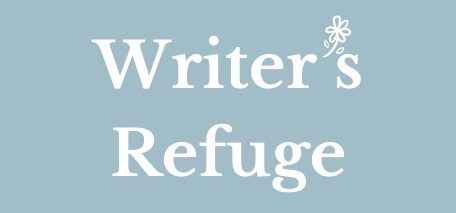Readers are stupid. Blunt, I know, but you have to treat them as such. You, dear reader, are not at all stupid, and I know that- but I have to treat you as if you are. All writers have to treat their readers as if they are incompetent.
Tell
I understand if you feel a bit attacked right now, I just told you that readers should be treated as if they are stupid, and that sounds a little extreme, doesn’t it? It has a lot to do with show and tell. A lot of times, writers are told to ‘show and not tell’ in their storytelling. I’ve found that the idea of ‘showing and not telling’ in writing is blatantly wrong. You need, as you do in most aspects of life, balance. You need to show, and tell. That’s how you write effectively.
At debate camp, we had a whole section in a lecture on how our judges are stupid. Of course, our judges aren’t actually stupid, and we knew that. Or, most of them aren’t, at least. The important thing is to treat them as if they are, even if they aren’t. We were taught to over explain our arguments, to explain every link and reason that seemed like common sense to us. Just because we understood, our coaches at camp explained, doesn’t mean that our judges easily could.

We had to remember that we researched an endless amount, and maybe we knew the topic inside and out. We were also actually in the round. We have an automatic incentive to understand everything, because we are actually competing in the round. The judges don’t have the same incentive that us competitors have. They need to understand what’s going on in the round, and it’s based solely on what competitors are telling them. That’s why it’s the responsibility of the competitors to spell out everything for them, so they can understand. If they don’t, then the judge doesn’t really have to care. They just won’t rank the competitor well; it’s that simple.
What we have to tell our judges were simple, short sentences- that are often overlooked. ‘This overturns their entire point.’ ‘Their impacts will never be achieved if this happens first.’ ‘This is more important than that.’ These are all statements that have hopefully already been proven in your speech, but you need to tie it all together and hand the takeaway to your judge on a silver platter wrapped with a bright red bow. You have to tell them why you’re right. You show them through your points, and then you tell them.
This lecture in camp not only helped me in debate to see things differently, but also in writing. The dynamic works in the same way. Your reader has no true incentive to read your writing. You, dear reader, don’t have to be reading this right now, yet you are. If your writing is slow, or doesn’t make sense, or doesn’t make your reader visualize what’s going on, they aren’t going to want to read it.
Most people read for pleasure, not because they want to gauge their eyes out. They don’t want to, nor are they going to, struggle to understand what you are trying to show them. They’ll just shut the book and say, ‘well, that was boring, I had no idea what was going on.’ And your reader isn’t going to try to understand what’s going on, if you don’t tell them. Sometimes you need to tie everything together in a simple sentence, handing it to your reader with a smile. ‘She felt tired.’ ‘He was moving sluggishly.’ ‘They were unhappy.’ You can show these things, and you should. But, sometimes, you should also tell your reader- just plainly tell them what’s going on. You are the competitor, and your reader is the judge. You have to win their favor, you have to explain to them what’s going on. They don’t visualize your story and the world you’ve created on their own. Just as judges don’t visualize competitor’s arguments, readers can’t visualize your story unless you do it for them.
Show
A book I feel utilizes ‘show and tell’ perfectly is ‘To all the Boys I’ve Loved Before’ by Jenny Han. If you haven’t already read it (first, I don’t know how you haven’t) I highly recommend it. Besides the effective writing I found that I’m about to tell you about, it was simply a good book and an enjoyable story.

Something I really enjoyed about this book (I don’t really think this spoils anything if you haven’t read it yet) is how it focuses on relationships. All of Lara Jean’s relationships. Not just her exploring her new relationship with Peter, or figuring out what a boyfriend really means to her. It was Lara Jean and her relationship with both her sisters. It was about Lara Jean, and her relationship with her dad. With her best friend Chris. With herself. The important thing about all of these relationships being focused on and developed throughout the course of the novel, is that Jenny Han shows, and tells.
For example, one of the most significant relationships in the book is with Lara Jean with her sister Margot. Margot is older, and means the world to Lara Jean. We are shown, through Lara Jean’s actions, that Margot’s happiness means a lot to her. We don’t need to be told that Lara Jean cares about Margot, because she shows us. There is one line in particular that stands out to me, every time I read it:
“”Are you saying my sister’s blind and brainless?” I demand. If he says one bad word about my sister, that’s it. This whole thing is off. I don’t need him that badly.”
Margot is across the sea in college, and even from there, she effects Lara Jean’s thoughts and actions. I feel that this line, even standing alone, perfectly reflects the balance with show and tell. It uses both show and tell almost interchangeably, and it enables me to really visualize how much Margot means to Lara Jean. It shows me how far Margot’s reach is, even from all the way across the world. It shows me, through simple dialogue, that Margot is very important to Lara Jean, and how fiercely protective she is of her. I wasn’t told, ‘she cares for her sister,’ but I was shown.
On the same token, we are told, if subtly, we are told that Lara Jean cares for Margot in just that short excerpt. “If he says one bad word about my sister, that’s it.” We are told: don’t say anything bad about her, because it won’t end well, and we are shown, Lara Jean cares for her sister. The show and the tell here are tied so closely together it’s hard to distinguish which is being used where, and I would argue that is what makes it so effective.
Throughout the entire novel, Jenny Han effectively utilizes this perfect combination of show and tell. Throughout, we are plainly told, ‘I’m Lara Jean, I care about my sisters,’ and then we are shown, through what she does, ‘yeah I care about my sister look what I’m doing can’t you tell.’
Don’t use all show and no tell, just as you shouldn’t use no show and all tell. You need to show and tell, and that’s how you’ll write effectively. One quick tip that has worked well for me to make show and tell work, is to show emotions, and to tell feelings. However, in the big picture, there’s more to it than that. Find the balance that works best for you!

